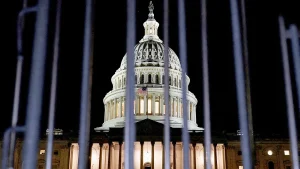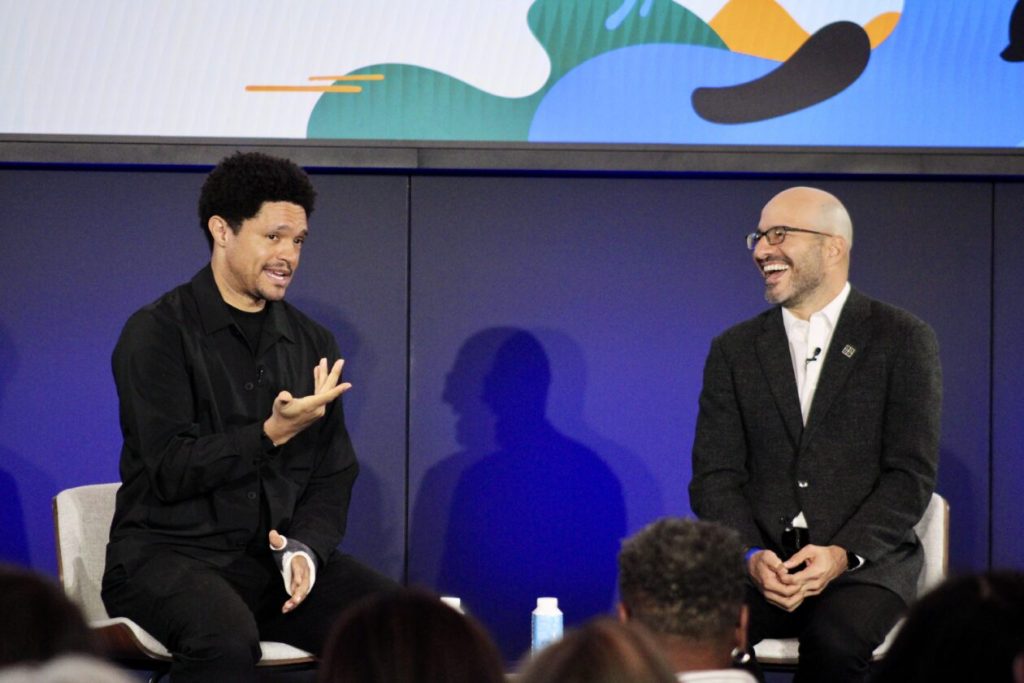Trevor Noah Voices Concerns Over AI Video Generation as Microsoft Launches Education Initiative
In a thoughtful conversation following the launch of Microsoft’s new AI education initiative in Washington state, comedian and former Daily Show host Trevor Noah expressed significant concerns about the trajectory of AI video generators like OpenAI’s Sora. Speaking at Microsoft’s Redmond headquarters where he serves as the company’s “chief questions officer,” Noah articulated worries that extend beyond mere technological fascination to touch on fundamental questions of consent, ownership, and reality. “I have to figure out what they’re doing and how they’re doing it,” Noah told GeekWire, adding with notable concern, “But I don’t think it’ll end well when they’re not dealing with permissions.” His comments come at a critical juncture when Sora 2, released just last week, has become the top free app on Apple’s App Store, allowing users to generate remarkably realistic videos from text prompts or by transforming existing footage—including a new “Cameo” feature that enables the generation of videos featuring human likenesses.
The comedian’s apprehension reflects a growing unease across creative industries and beyond. “This could end up being the most disastrous thing for anyone and everyone involved,” Noah warned, pointing to Denmark’s proactive approach in introducing legislation that would give individuals ownership of their digital likeness—a model he believes the United States should adopt “ASAP.” This sentiment echoes the intense pushback from major Hollywood talent agencies that have criticized Sora for enabling the use of a person’s image without explicit consent or compensation. The controversy has been amplified by recent AI-generated videos depicting deceased celebrities like Robin Williams and George Carlin, which have provoked public outrage from their families who had no say in how their loved ones’ likenesses were posthumously employed.
Legal experts see this new wave of AI video tools as a significant test for existing publicity and likeness laws. Kraig Baker, a media attorney with Davis Wright Tremaine in Seattle, suggests the most pressing concern isn’t necessarily deliberate misuse by advertisers but rather the potential flood of casual or careless content that incorporates people’s likenesses without permission—now made dramatically easier by accessible AI tools. The issue becomes particularly complex for deceased public figures whose estates may no longer actively manage their image rights, creating a legal gray area that current frameworks may be ill-equipped to address. As New York Times columnist Brian Chen soberly noted, these developments could represent “the end of visual fact—the idea that video could serve as an objective record of reality—as we know it,” forcing society to apply the same skepticism to visual information that we’ve learned to apply to written content.
In response to mounting concerns, OpenAI has published a Sora 2 Safety document outlining consent-based likeness policies, stating: “Only you decide who can use your cameo, and you can revoke access at any time. We also take measures to block depictions of public figures (except those using the cameos feature, of course).” The company has also evolved its approach to copyrighted characters, moving from an initial opt-out policy to what CEO Sam Altman describes as giving “rightsholders more granular control over generation of characters” while establishing a revenue model for copyright holders. This shift suggests recognition of the legitimate concerns raised by creators and their representatives, though many remain skeptical about whether these measures will be sufficient to prevent misuse.
The rapid evolution of AI video generation technology is not just creating challenges—it’s also spurring entrepreneurial responses. Seattle-based startup Loti, which helps high-profile individuals protect their digital likeness, reports that their business is “booming right now” with approximately 30 times growth in signups month-over-month. According to CEO Luke Arrigoni, “Everyone is concerned about how AI will use their likeness and they are looking for trusted tools and partners to help guide them.” The company recently raised $16.2 million, indicating strong market interest in solutions that address the growing concerns around AI-generated content and digital identity protection.
All of this unfolded against the backdrop of Microsoft’s launch of its “Elevate Washington” initiative for AI and education, where Noah interviewed Code.org CEO Hadi Partovi. The juxtaposition is telling—as major tech companies push forward with AI education and implementation, the societal, ethical, and legal frameworks needed to govern these powerful technologies remain works in progress. Trevor Noah’s outspoken concerns highlight the tension between technological advancement and ethical implementation, suggesting that the path forward requires not just technical innovation but also thoughtful regulation and respect for individual rights. As AI video generation tools become increasingly accessible and realistic, the conversation around consent, ownership, and digital identity will only grow more urgent, demanding responses from lawmakers, tech companies, and society at large.















